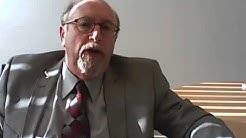Contents
Explain How A Reverse Mortgage Works How reverse mortgages work. According to the AARP, a reverse mortgage is a loan you borrow against your home that you don’t have to pay back for as long as you live there. For many older Americans, the opportunity to convert the equity in their homes into cash, with no repayment required until they die or sell the home, sounds appealing.
Reverse mortgages can use up the equity in your home, which means fewer assets for you and your heirs. Most reverse mortgages have something called a "non-recourse" clause. This means that you, or your estate, can’t owe more than the value of your home when the loan becomes due and the home is sold.
 One Reverse Mortgage, the San Diego unit of Quicken Loans, launched its jumbo reverse mortgage (the Home Equity Loan Optimizer or HELO. the money as a lump sum or a line of credit and how much you.
One Reverse Mortgage, the San Diego unit of Quicken Loans, launched its jumbo reverse mortgage (the Home Equity Loan Optimizer or HELO. the money as a lump sum or a line of credit and how much you.
Texas Reverse Mortgage The reverse mortgage loan has continued to evolve since its introduction in 1961 and only grows stronger and safer with each year. This is primarily due to rules and regulations set by the federal housing administration (fha). The FHA continually updates and regulates reverse mortgages with new guidelines to protect you as a borrower.
The rule of thumb. In general, though, you should expect to have 50% equity or more in your home to get a reverse mortgage, especially through HECM. This is because you must use your HECM to pay off your existing home loan first. If you own less than 50%, the proceeds of your reverse mortgage won’t cover that gap.
To qualify for a reverse mortgage, the homeowner must be at least 62 years old and have sufficient equity in the house. The size of the loan depends on the value of the home, the age of the youngest.
How Much Equity Do You Need for a Reverse Mortgage?. If you’ve paid your home off – or if you nearly have – there may be several good reasons why you don’t want to leave all that equity tied.
Whether you’re looking to supplement your retirement income or help alleviate short-term financial challenges, a reverse mortgage could be the answer. In a nutshell, a reverse mortgage is a home equity loan designed for homeowners who are at least 62 years old and have a lot of equity in their homes.
What Are Reverse Mortgages A reverse mortgage is a loan available to homeowners, 62 years or older, that allows them to convert part of the equity in their homes into cash. The product was conceived as a means to help retirees with limited income use the accumulated wealth in their homes to cover basic monthly living expenses and pay for health care.
A reverse mortgage is a type of home loan that lets you convert a portion of the equity in your house into cash. With regular mortgages, borrowers make monthly payments to pay down the debt. With reverse mortgages, lenders pay borrowers and the debt increases over time.
How much you owe on your mortgage and your tax situation can help determine whether a reverse mortgage is a good idea. (Getty Images) Reverse mortgages, or home equity conversion mortgages, are touted.